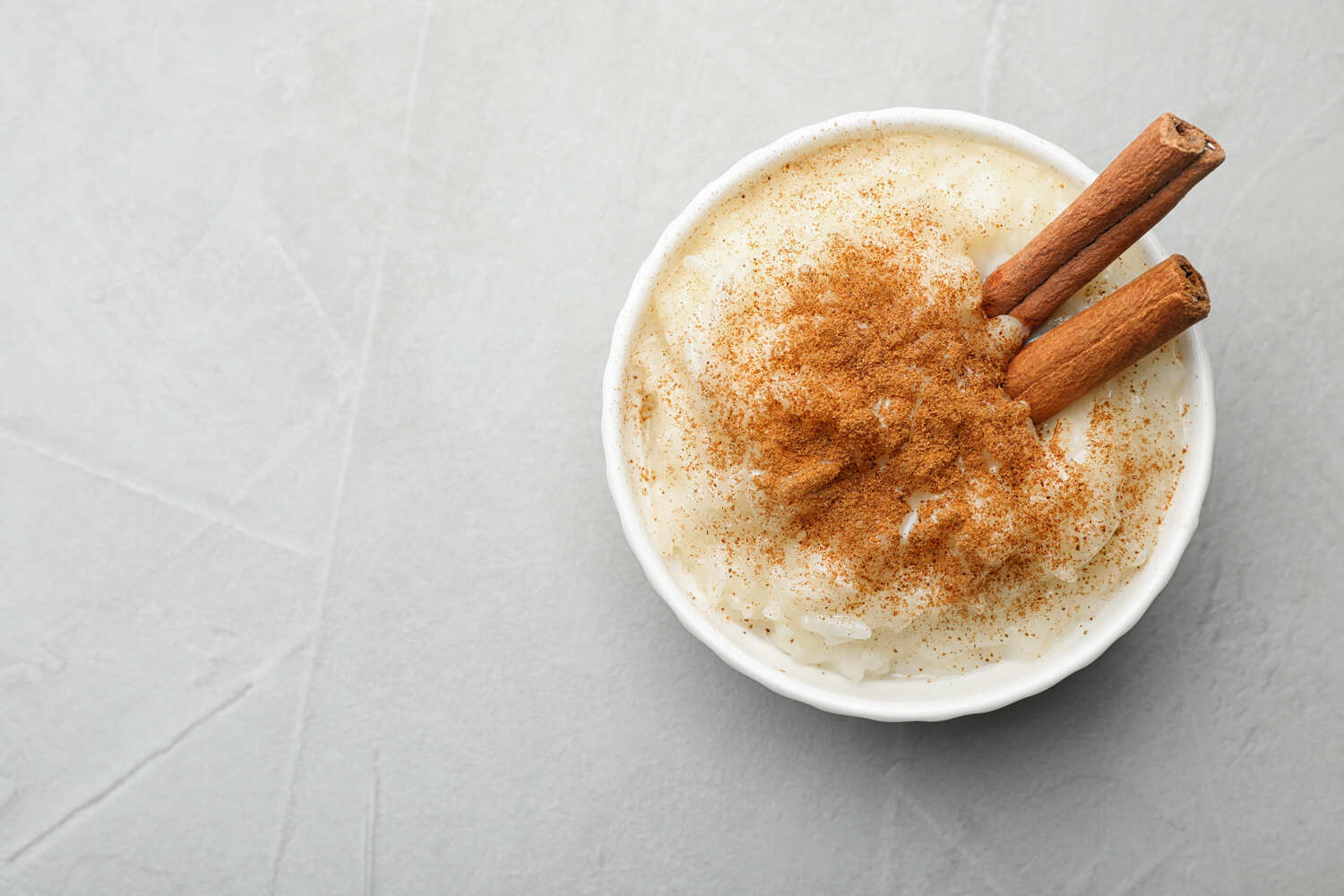
Introducing new foods with different flavors and tastes to your rapidly growing infant may be an exciting yet nerve-racking experience for most mothers. After all, variety is the spice of life for fast-growing babies. This does not mean you should add a lot of spices to the food that your baby eats. Cinnamon for babies is one such food that can add tons of flavor. A few sprinkles is all you need to healthily enrich infant foods.
Are you thinking of introducing cinnamon to your baby’s diet? Wondering, “Is cinnamon safe for my baby?”. Look no further than this page. It has all you need to know about safely incorporating cinnamon into your baby’s meals. Learn how to make cinnamon a delicious addition to your baby’s comfort food regimen while also protecting their health.
In This Article
- Is Cinnamon Safe For Babies?
- When Can Babies Start Having Cinnamon?
- Benefits of Cinnamon For Babies
- Precautions When Feeding Cinnamon To Babies
- Side Effects of Cinnamon For Babies
- How to Include Cinnamon in Your Baby’s Diet
- FAQ’s
Is Cinnamon Safe For Babies?
Yes, cinnamon is generally considered safe to feed to your infant in small amounts after they reach 6 months of age. Cinnamon does not usually cause allergic reactions in newborns. Therefore, sprinkling this spice on your baby’s meal is unlikely to cause an issue.
It is important, however, to introduce new foods gradually and monitor for signs of discomfort or allergies. Before giving cinnamon or any new spice, you can consult a pediatrician to ensure you can start feeding it to your baby.
When Can Babies Start Having Cinnamon?

When your baby is at least 6 months old, you can start trying out new dishes and experimenting with flavorful spices that you use commonly during family daily meals.
Adding spices like cinnamon to your baby’s food is an excellent way to add a different taste without adding sugar or salt.
Cinnamon adds a mild, sweet flavor to commonly bland baby foods, making meals more appealing for your little one. It’s a safe and simple method to introduce new flavors to their palate as you begin to explore different dietary alternatives for your growing baby.
Read : Sugar Water For Babies – Is It Safe?
Benefits of Cinnamon For Babies

Woody cinnamon has a lovely sweet flavor and provides various health advantages for babies, including anti-inflammatory, antioxidant, and antibacterial properties.
These advantages will differ significantly based on the type of cinnamon used — the most prevalent being Ceylon cinnamon and Cassia cinnamon (1).
Research reveals that the earlier an infant is exposed to a variety of flavors, the better and easier eater they will be in the years to come. Pick up why this spice is a valuable addition to your little one’s diet.
1. Helps Reduce Inflammation
Cinnamon contains anti-inflammatory properties (2) that can help lessen inflammation. Because of this helpful function, cinnamon can be utilized while your baby is teething, which promotes gum inflammation .
2. Safeguards Against Seasonal Illnesses
Its antioxidant properties may protect against seasonal illnesses and, in the event of illness, allow for faster recovery (3).
3. Eases Dental Issues
Cinnamon can be used to treat teething, toothache, dental problems, and persistent bad breath in babies (4).
4. Boosts Digestion
This spice protects your baby’s gut lining; works as a natural pain reliever when used to treat minor illnesses.
5. Supports Immunity
It supports your baby’s immune system and provides anti-allergy benefits (5).
Precautions When Feeding Cinnamon To Babies
As a precautionary measure, consult your pediatrician to determine the safe limit, before giving cinnamon to your baby. Here are a few points to consider when feeding cinnamon to babies
- Choose thinner cinnamon sticks over ready-made cinnamon powder, which quickly loses flavor. You may easily make fresh powder at home to meet your culinary needs.
- Add a dash of cinnamon to your baby’s milk porridge to see whether they love the new flavor. If they reject its flavor; however, simply try it again in another meal after a few days.
- Babies can be given 1-2 teaspoons of cinnamon-infused water. However, the amount of cinnamon added to the water should be carefully regulated.
The above steps ensure your baby’s safety when introducing cinnamon to their diet. Consulting a pediatrician for advice is critical to managing this safety. Simple ways to introduce this spice into your baby’s diet include making your own cinnamon powder and adding it to various recipes in moderation.
Side Effects of Cinnamon For Babies
Cinnamon allergies are quite uncommon in infants. However, giving your infant an excessive amount of cinnamon may result in an allergic reaction. Always follow the three-day rule maintaining a gap of at least 3 days in between introducing new foods. This will help identify possible food allergies.
Always remember that giving your infant too much of anything is generally not a good idea. Accidental cinnamon inhalation may cause babies to have sneezing or coughing.
However, you should be aware of any of these side effects after introducing cinnamon to your baby.
- Nausea
- Vomiting
- Diarrhea
- Stomach aches
- Irritability
- Weeping
- Swelling and/or hives
- Skin irritation
- Eczema patches
- Difficulty breathing.
How to Include Cinnamon in Your Baby’s Diet

Cinnamon can easily be used in small amounts in nearly all pureed baby food recipes and finger foods.
Start with a little dose and gradually increase it as tolerance grows, but always in moderation— sprinkling and flavoring the baby food is the best way to incorporate cinnamon in your baby’s diet and broaden their developing palate.
Here are few options to try for your little ones.
- Use it to flavor plain yogurt, kheer, pudding, etc.
- Sprinkle it over toasted and buttered bread sticks.
- Sprinkle cinnamon over flour for making thepla, parantha, poori, pancake, or cup cake for your kid.
- Season meat, chicken, or fish with ground cinnamon for a flavourful dish.
- Make a variety of stews, soups, purées, and curries by inserting a whole cinnamon stick in the pot and removing it at the end of cooking time.
- It also makes a great topping for roasted and mashed sweet potatoes or eggplants.
- Infuse warm taste into grains such as rice, daliya, oats, and porridges by adding a whole cinnamon stick to the cooking water and removing it at the end of the cooking period.
- Core an apple or pear, insert a cinnamon stick into the cavity, and bake in the oven until soft.
- Add flavor to boiled eggs or potatoes by dusting with cinnamon.
Cinnamon is safe for babies with slight effects and health benefits like anti-inflammatory properties and aiding digestion. Introduce it gradually in homemade powder form to enhance food and drinks moderately. Overuse can overpower flavors, so use in moderation for a tasty and healthy addition to your baby’s diet.
FAQ’s
1. When Can Babies Start Eating Cinnamon?
When your baby is comfortable eating solid meals, you can gradually incorporate cinnamon into their diet. This often occurs around the age of six months, though it varies depending on the baby.
2. How Can Babies Benefit From Eating Cinnamon?
Woody cinnamon spice has a sweet flavor and offers a variety of health benefits to babies, including anti-inflammatory, antioxidant, and antibacterial characteristics during this critical developmental stage.
3. When to Avoid Cinnamon For Babies?
If your infant already has gastrointestinal difficulties, avoid giving cinnamon because it might cause stomach distress and skin irritation in some babies.
[Read Also : Nutmeg(Jaiphal) For Babies]
References
- Differentiation of the Four Major Species of Cinnamons (C. burmannii, C. verum, C. cassia, and C. loureiroi) Using a Flow Injection Mass Spectrometric (FIMS) Fingerprinting Method – PMC – [https://www.ncbi.nlm.nih.gov/pmc/articles/PMC3983393/]
- Antioxidant and Anti-Inflammatory Effect of Cinnamon (Cinnamomum verum J. Presl) Bark Extract after In Vitro Digestion Simulation – PMC – [https://www.ncbi.nlm.nih.gov/pmc/articles/PMC9914695/\
- Cinnamon as a Useful Preventive Substance for the Care of Human and Plant Health – PMC – [https://www.ncbi.nlm.nih.gov/pmc/articles/PMC8433798/]
- Selected bioactive compounds content of cinnamon spice – [https://aspace.agrif.bg.ac.rs/handle/123456789/6784]
- Cinnamon extract inhibits allergen‐specific immune responses in human and murine allergy models – Ose – 2020 – Clinical & Experimental Allergy – Wiley Online Library – [https://onlinelibrary.wiley.com/doi/10.1111/cea.13507]

